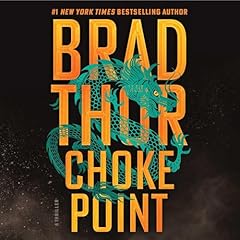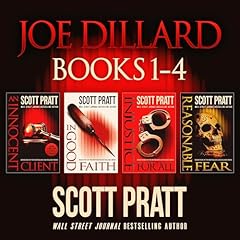
Shadow Zero
An Agent Zero Spy Thriller, Book 13

-
Narrado por:
-
Brian Callanan
-
De:
-
Jack Mars
Shadow Zero is book #13 in the #1 bestselling AGENT ZERO series, from USA Today bestselling author Jack Mars (with over 10,000 five-star reviews). The series begins with Agent Zero (Book #1), a free download.
A crashed satellite's secrets spur CIA Agent Maya Lawson on a perilous mission to the jungles of Africa—only to find herself betrayed and captured deep in enemy territory.
Thousands of miles away, the man formerly known as Agent Zero, long thought dead, must abandon his quiet life and return to the chaotic world of espionage, lured out by the only thing that would ever lead him return: to save his daughter's life.
The Agent Zero saga offers a gripping journey packed with unexpected turns and dynamic action, keeping you enthralled from start to finish. At the core of this thrilling series is an engrossing relationship between a father and his daughter, which is sure to keep you listening voraciously until the early hours.
Books #14-#24 in the series are also available!
Los oyentes también disfrutaron:









Las personas que vieron esto también vieron:

















Feelings are fine to establish motivation. However, an action spy thriller is not supposed to have it's operatives marinating in feelings about relationship issues, apologies, and endless descriptions of regret, indecision, and petty intra-familial grievances in the middle of a life and death operation--or even as an after action "pity party." This book disappoints by turning into a group therapy session at various junctures.
The basic plot is good. But the bad decisions and lack of focus detract. So, much so that, along with the gratuitous group therapy, one wonders if the author is trying out for the Charles Dickens "dollars for words" contest or to become a Harlequin Romance novelist. Even if pay for words is a myth about Charles, it seems that Mars has taken it to heart.
Other than that, the author's firearms terminology is careless. Most egregious is calling a magazine a clip. If the author can't spell magazine, the editor can. Also, he can just say "mag," and we will all know that he understands the difference. A "clip" is a short piece of channeled metal that an operator can slide a few rounds into. Clips can be used with some older models of bolt action firearms in order to reload the fixed magazine in the rifle more quickly by stripping the rounds from the clip into the magazine through the open breech (bolt held back out of the way). However, automatic and semi-automatic weapons (pistols and rifles) use exchangeable magazines--most of which have higher capacity than a clip (anywhere from 10 rounds to as many as 100 or even 150 rounds). AR-15 style rifles generally have 30 round mags (not clips) and a wise operator will carry several fully loaded spares. Any reader who is an avid reader of action thrillers knows this and cringes at the use of the word clip when the author really means, magazine.
Another common keystone cop move by our heroes is to pass up weapons or ammo on dead enemies and then run out of usable weapons the next instant--ending up with a knife or in hand to hand combat against an antagonist with a gun. Not entirely sure why an author would treat his protagonists as if they are totally clueless about what to do when a defeated enemy's weapon is readily at hand and the hero is out of ammo.
Other stupid move: Taking a self-piloted boat when a helo could have been requisitioned. Admittedly, the author calls that out as dumb. But, the author has nobody to blame but himself when his characters act like dummies. Readers admire heroes who represent them competently. Exigencies do come up. But they should be from unforeseeable external forces and not from the hero shooting himself in the foot with bad decisions. When the author writes for his hero that, "it was a decision that he soon would regret," the problems that follow are nobody's fault but the author's. The hero can't possibly be smarter than the writer when the writer intentionally makes him stupid.
Drama Queens and Keystone Cops
Se ha producido un error. Vuelve a intentarlo dentro de unos minutos.
Can't believe how bad this book was
Se ha producido un error. Vuelve a intentarlo dentro de unos minutos.
Jack Mars should be embarrassed
Se ha producido un error. Vuelve a intentarlo dentro de unos minutos.
I’m sadly done with Agent Zero. The woke never learn from Bud Light. ☹️
PROFANITY.
Se ha producido un error. Vuelve a intentarlo dentro de unos minutos.
nothing to write home about
Se ha producido un error. Vuelve a intentarlo dentro de unos minutos.

